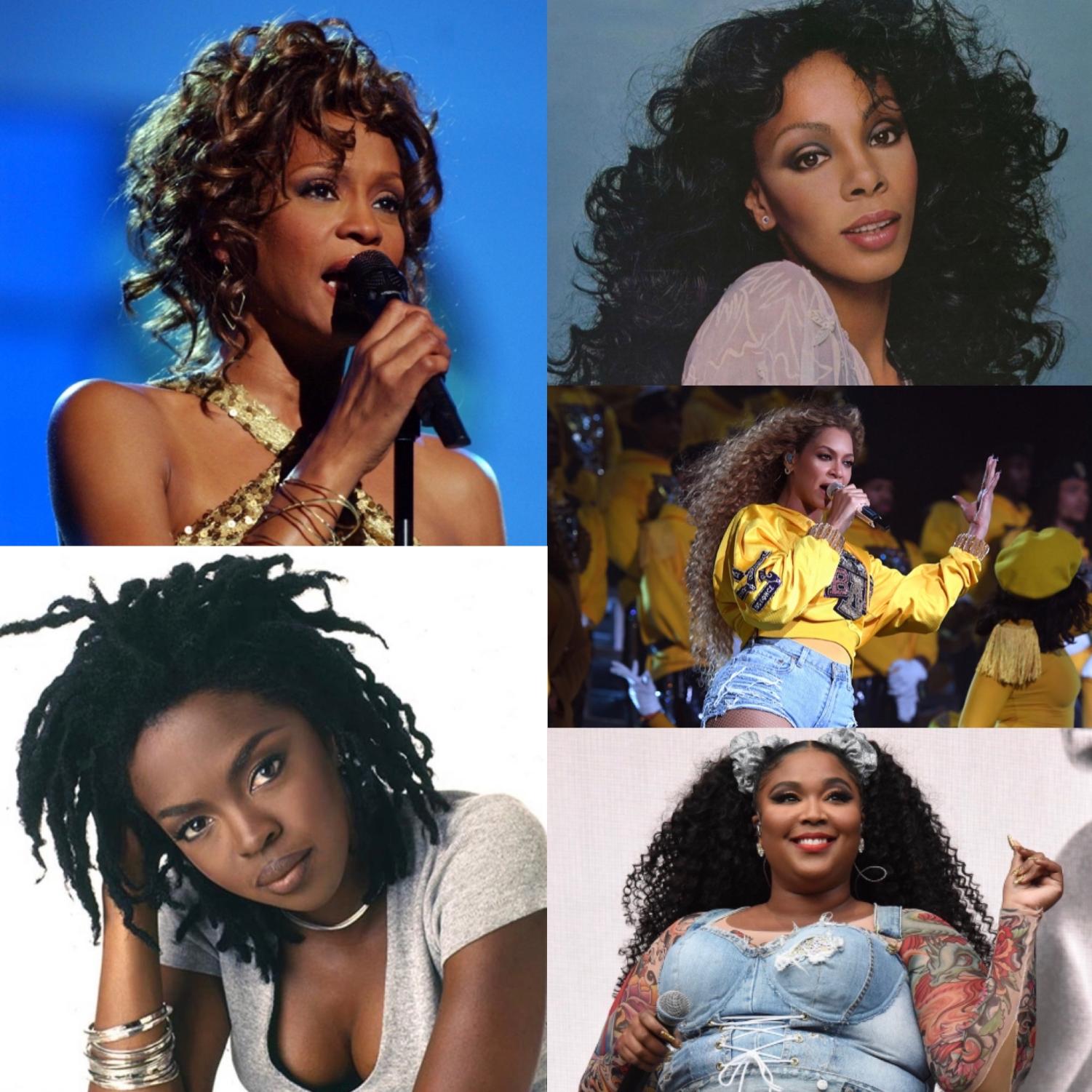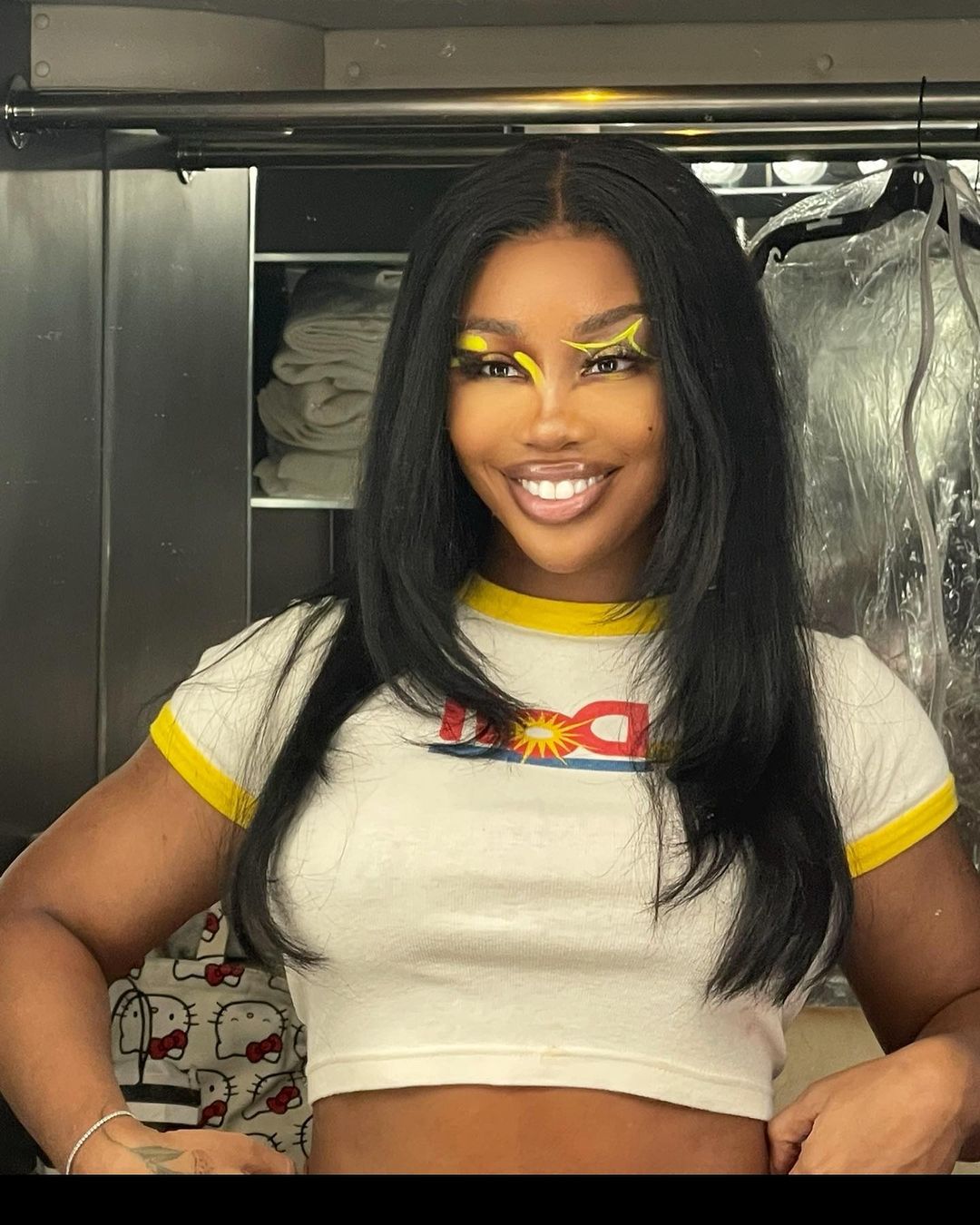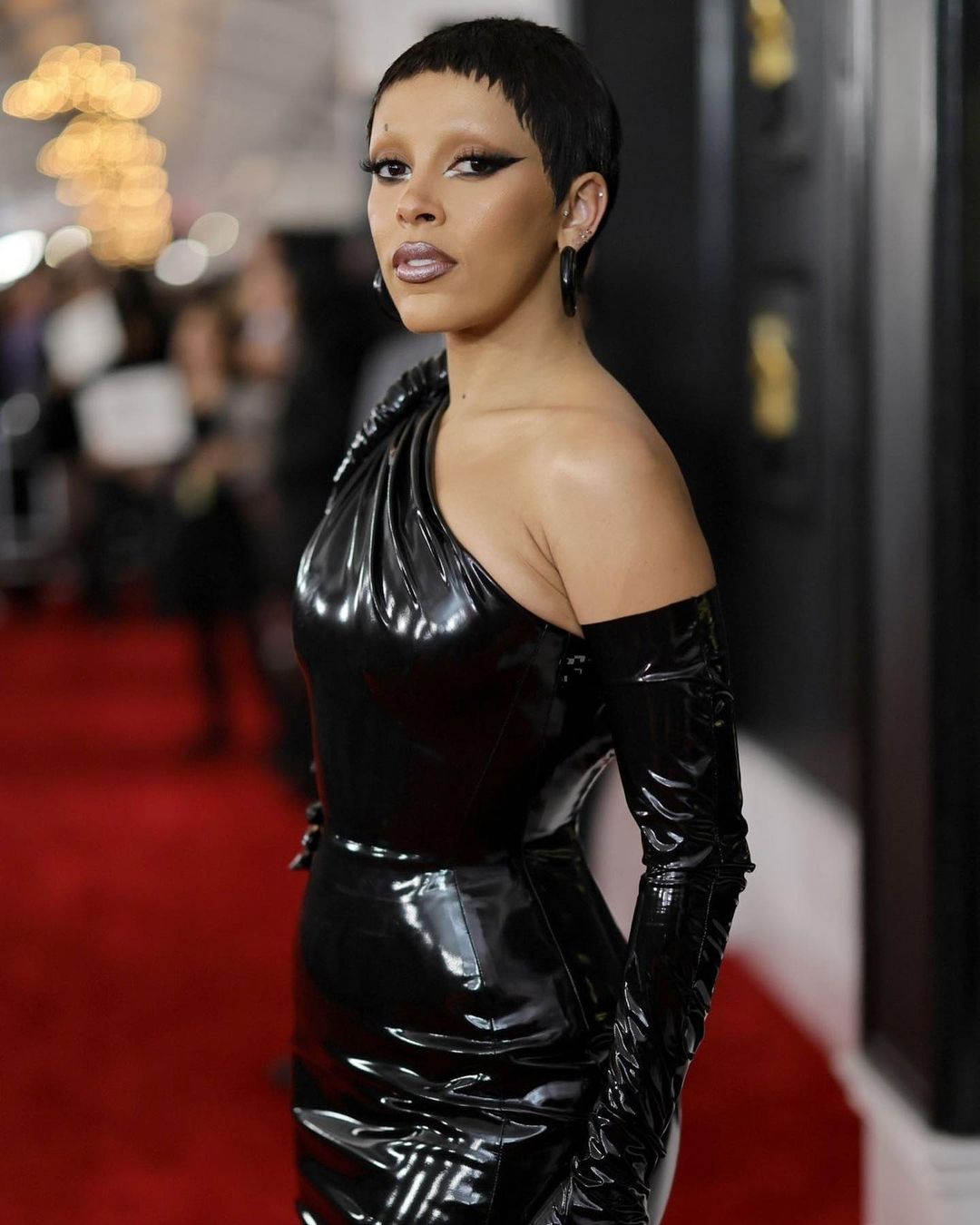The music of the 1990s and 2000s, it's almost like a warm hug for your ears, isn't it? That period, you know, really brought us some incredible sounds, especially from black female singers. Their voices, their stories, and their unique ways of making music truly changed the landscape of popular culture, leaving a mark that we still feel today. It was a time when R&B, soul, and pop blended in ways that just felt right, giving us anthems that still get played at gatherings and on quiet evenings.
Think about it, the airwaves back then were filled with a richness that felt both deeply personal and universally appealing. These artists, they weren't just singing songs; they were sharing pieces of their lives, making us feel seen and understood. From powerful ballads that could bring tears to your eyes to upbeat tracks that made you want to move, their contributions were, like, totally diverse. They showed us so many different sides of emotion and expression, which, you know, is a pretty big deal for music lovers.
This article, in a way, is a chance for us to talk and share about those amazing voices. It's like gathering together to remember why we loved them so much and why their music still matters. We'll explore how they shaped the sounds we still enjoy and why their legacies continue to be so very important in the world of music.
- Lil Babys Bm Ayesha
- Andy Cohen And Partner
- Where Did Dubai Get Its Money
- What Is Jordan Matters Net Worth
- Video Of Fan Falling
Table of Contents
- Mary J. Blige - The Queen of Hip-Hop Soul's Story
- How Did Black Female Singers of the '90s Create Such Lasting Impact?
- What Fresh Perspectives Did 2000s Black Female Singers Bring?
- Who Else Left Their Mark Among Black Female Singers of the '90s and 2000s?
- Why Do These Iconic Black Female Singers Continue to Resonate?
Mary J. Blige - The Queen of Hip-Hop Soul's Story
When you think about the '90s and the way music started to really change, Mary J. Blige, you know, she just pops right into your mind. She came onto the scene with a sound that felt totally new, blending the raw emotion of R&B with the gritty, authentic feel of hip-hop. Her music wasn't just about singing pretty notes; it was about telling stories, sometimes difficult ones, in a way that felt incredibly honest. She brought a kind of vulnerability and strength that resonated with so many people, making her a true voice for a generation. It’s pretty amazing, actually, how she managed to capture that particular feeling.
Her debut album, "What's the 411?", released in 1992, really shook things up. It wasn't just a collection of songs; it was a statement. She wasn't afraid to sing about heartbreak, struggle, and finding your way, all while backed by beats that made you want to nod your head. This unique blend earned her the well-deserved title of the "Queen of Hip-Hop Soul." She didn't just sing; she conveyed feelings, and that, you know, made all the difference. She really paved the way for so many others, showing that you could be both soulful and streetwise, which was, like, a really fresh concept at the time.
Over the years, Mary J. Blige continued to grow and evolve as an artist, releasing album after album that showcased her incredible range and emotional depth. From "My Life" to "No More Drama," her work consistently explored themes of self-discovery, resilience, and love. She's been incredibly open about her own experiences, which, in turn, has allowed her listeners to feel a deep connection to her music. It's that kind of genuine connection, really, that helps an artist stay relevant for decades. She’s just a powerhouse, in every sense of the word.
- Country Artists Top 100
- Katie Pavlich Religion
- Greatest Centers Of All Time
- Rockstar Pina Colada
- Quotes In The Dark
Personal Details and Musical Journey
Mary J. Blige's path to becoming a music icon is, in some respects, a testament to perseverance. Her personal background has always been woven into the fabric of her songs, giving them an extra layer of authenticity that fans really appreciate. It's like she's singing directly to you, sharing her own experiences, which, you know, makes her music feel very real.
| Full Name | Mary Jane Blige |
| Born | January 11, 1971 |
| Birthplace | The Bronx, New York, U.S. |
| Genre | R&B, Soul, Hip-Hop Soul, Gospel |
| Years Active | 1991-present |
| Notable Albums | What's the 411?, My Life, Share My World, No More Drama, The Breakthrough |
| Key Traits | Raw emotion, powerful vocals, hip-hop influence, lyrical honesty |
Her journey, as a matter of fact, began in Yonkers, New York, where she grew up facing various challenges. Music, it seems, was always a way for her to express herself and find a voice. Her talent was discovered when she recorded a cover of Anita Baker's "Caught Up in the Rapture" at a local mall, which eventually made its way to Uptown Records. This was, basically, the start of something really big. Her ability to infuse her singing with such deep feeling, you know, that’s what set her apart from the very beginning.
Throughout her career, Mary J. Blige has not only released a string of successful albums but also branched out into acting, earning critical acclaim for her roles. Her ability to reinvent herself while staying true to her core artistic identity is pretty remarkable. She’s shown us, time and again, that true artistry means being able to evolve and adapt, which is, like, a really inspiring thing to see. She truly embodies what it means to be a lasting figure in music.
How Did Black Female Singers of the '90s Create Such Lasting Impact?
The '90s, well, it was a pretty special time for music, wasn't it? Especially for black female singers. They didn't just sing; they pioneered a sound that felt both familiar and incredibly fresh. This era saw a shift where R&B became a dominant force, moving beyond just slow jams to incorporate hip-hop beats, pop melodies, and a more assertive, confident lyrical style. It was a period where female artists really started to take control of their narratives, which, you know, was a big step forward.
Artists like Mariah Carey, with her incredible vocal range, and Whitney Houston, whose powerful voice could move mountains, continued to reign, showing the world the sheer talent present. But then you had artists like Janet Jackson, who seamlessly blended pop, R&B, and dance, creating a whole visual and sonic experience. TLC brought a unique blend of sassy R&B with socially conscious messages and a distinctive style. Their music, in some respects, felt like a conversation with friends, which made it so relatable.
This period also saw the rise of neo-soul, a subgenre that looked back to classic soul music while adding modern touches. Erykah Badu, with her unique style and introspective lyrics, and Lauryn Hill, who blended rapping and singing with incredible lyrical depth in her solo work, really defined this movement. They offered a different kind of sound, one that felt more organic and, like, very soulful. It's pretty clear that the '90s were a melting pot of creativity for these artists, and their influence, honestly, still resonates today.
The Distinctive Sound of '90s Black Female Singers
The sound that came out of black female singers in the '90s was, basically, unmistakable. It had a certain richness and authenticity that set it apart. There was a strong emphasis on vocal ability, with many artists showcasing incredible runs, ad-libs, and harmonies that just blew you away. Think about the intricate vocal arrangements in Destiny's Child's early work or the smooth, layered vocals of SWV. This focus on pure vocal talent was, you know, a hallmark of the era.
Beyond the voices themselves, the production played a big role too. Producers started incorporating more hip-hop drums and basslines into R&B tracks, giving them a harder edge that appealed to a broader audience. This fusion, in a way, created a new sound that was both danceable and emotionally resonant. It allowed artists to be both commercially successful and, like, very artistically credible. This blend, really, was quite innovative for its time.
Lyrically, these singers tackled a wide range of topics, from love and relationships to self-empowerment and social issues. They weren't afraid to be vulnerable, strong, or even, you know, a little bit sassy. This honesty in their storytelling helped to build a deep connection with their fans, making their music feel like a trusted companion. It was this combination of powerful vocals, innovative production, and relatable lyrics that made the '90s sound of black female singers so truly unforgettable.
What Fresh Perspectives Did 2000s Black Female Singers Bring?
As the calendar flipped into the 2000s, the music scene kept evolving, and black female singers were, like, right at the forefront of that change. While the '90s laid a strong foundation for R&B, the new millennium saw artists pushing boundaries even further, exploring different genres and sounds. It wasn't just about R&B anymore; there was a real expansion into pop, hip-hop, and even alternative sounds, which, you know, made things incredibly exciting.
Artists like Beyoncé, stepping out as a solo artist, redefined what it meant to be a global superstar, blending incredible vocal talent with powerful stage presence and a knack for creating anthems. Alicia Keys brought a classical piano background to soul music, offering a sophisticated yet raw sound that felt totally unique. Rihanna, too, emerged during this period, constantly reinventing her style and sound, becoming a true pop chameleon. These artists, basically, showed that there were no limits to what black female singers could achieve.
The 2000s also saw more artists experimenting with electronic elements and different production styles, moving away from some of the more traditional R&B sounds of the previous decade. This willingness to innovate kept the music fresh and relevant, appealing to a broader audience. It was a time of real artistic freedom, where, in a way, anything felt possible. This period, honestly, was a fantastic showcase of versatility.
Expanding Horizons for Black Female Singers in the New Millennium
The new millennium truly offered a wider playing field for black female singers. The lines between genres started to blur even more, allowing artists to explore sounds that might have been considered outside the box before. This meant more crossover appeal and, like, a much bigger audience for their music. It was a time when artists could truly be themselves, which is pretty cool.
Take, for example, the rise of artists who seamlessly moved between singing and rapping, or those who infused their R&B with rock or electronic influences. This experimentation led to some truly innovative and memorable tracks. The music videos, too, became more elaborate and artistic, helping to tell the story of the songs in a visual way. It was, in some respects, a golden age for creative expression.
Furthermore, the 2000s saw the emergence of reality TV singing competitions, which, you know, brought new talent to the forefront and introduced them to a massive audience almost overnight. This changed the way artists were discovered and, like, how they built their careers. It allowed for even more diverse voices to be heard, which, basically, enriched the music scene even further. The horizon for black female singers really did expand in some very interesting ways during this period.
Who Else Left Their Mark Among Black Female Singers of the '90s and 2000s?
Beyond the household names, the '90s and 2000s were, like, absolutely packed with other incredibly talented black female singers who left their own distinct imprints on the music world. These artists, perhaps not always in the brightest spotlight, contributed so much to the rich tapestry of sounds from those two decades. Their work, you know, deserves just as much appreciation for its artistry and influence.
Consider artists like Monica and Brandy, who, basically, defined the sound of teen R&B in the '90s with their soulful voices and relatable lyrics about young love and heartbreak. Their duets were iconic, and their solo careers produced countless hits that still resonate with fans today. Aaliyah, too, though her career was tragically cut short, pioneered a sleek, futuristic R&B sound that heavily influenced artists for years to come. Her style was, in some respects, ahead of its time, which is pretty amazing to think about.
Then, as we moved into the 2000s, artists like Ashanti and Keyshia Cole brought their own flavor to the R&B scene, with songs that felt both heartfelt and catchy. Jill Scott and India.Arie continued to push the boundaries of neo-soul, offering intelligent, poetic lyrics and warm, organic sounds. Missy Elliott, while primarily a rapper, also showcased her incredible vocal and songwriting talents, creating some of the most innovative and influential music of the era. Their collective contributions, you know, really helped shape the sound of an entire generation.
Each of these artists, in their own way, added something special to the mix. Whether it was a unique vocal style, a fresh approach to songwriting, or an innovative production technique, they all played a part in making the '90s and 2000s such a vibrant and memorable period for black female singers. Their legacies are, like, very much alive in the music we hear today.
Why Do These Iconic Black Female Singers Continue to Resonate?
It's a pretty interesting question, isn't it? Why do the songs and voices of these black female singers from the '90s and 2000s still feel so relevant, even today? It's more than just nostalgia; there's a deeper reason why their music continues to connect with new listeners and hold a special place for those who grew up with it. Their impact, honestly, goes beyond just catchy tunes.
One big reason is the sheer quality of the music itself. Many of these songs were incredibly well-crafted, with strong melodies, thoughtful lyrics, and timeless production. Good music, you know, tends to stand the test of time, regardless of when it was released. These artists also possessed extraordinary vocal talents, which, basically, never go out of style. A powerful, emotive voice will always find an audience, which is a pretty simple truth.
Beyond the musicality, these singers often tackled universal themes that remain relevant across generations. Love, heartbreak, resilience, self-acceptance, and empowerment – these are feelings and experiences that everyone can relate to, no matter their age or background. When an artist sings with such genuine emotion about these topics, it creates a connection that lasts. It's like they're speaking directly to your soul, which, you know, is a very powerful thing.
Furthermore, many of these artists were trailblazers, breaking down barriers and setting new standards for what female artists could achieve in the music industry. They inspired countless others to pursue their dreams and to express themselves authentically. Their influence can be heard in the work of many contemporary artists, showing just how deeply they shaped the sound of modern R&B and pop. Their legacy, in some respects, is still being written through the artists they continue to inspire.
Finally, the cultural impact of these black female singers was, like, truly immense. They weren't just musicians; they were fashion icons, role models, and cultural commentators. They represented strength, beauty, and talent, influencing not just music but also style, attitude, and broader conversations about identity and representation. Their presence on the global stage helped to shape the cultural landscape in profound ways, which, basically, means their resonance will continue for a very long time.
This article has explored the significant contributions of black female singers from the '90s and 2000s, highlighting artists like Mary J. Blige and examining how they shaped the musical landscape. We discussed the lasting impact of '90s R&B, the fresh perspectives brought by 2000s artists, and celebrated other influential voices from both decades. The piece also considered why these iconic figures continue to resonate with audiences today, emphasizing their quality, universal themes, and cultural importance.
- Filipowski Height
- Jill Wagner Movies
- Engagement Wishes For Daughter
- Who Is The Smallest Basketball Player
- Joe Rogan Oldest Kid



Detail Author:
- Name : Prof. Javonte Sauer
- Username : stark.flavie
- Email : vance02@miller.com
- Birthdate : 1972-03-21
- Address : 25731 Mckayla Vista Apt. 617 Lakinborough, MN 68504
- Phone : +1-850-857-0565
- Company : Ferry Ltd
- Job : Meter Mechanic
- Bio : Sit eum odit amet est ex eligendi similique vero. Est in sint aspernatur inventore. Qui est beatae quod rerum est fugit.
Socials
tiktok:
- url : https://tiktok.com/@fae6624
- username : fae6624
- bio : Voluptas quia harum dolores sunt. Iste id nostrum alias ut eveniet.
- followers : 6403
- following : 1170
facebook:
- url : https://facebook.com/fae_dickens
- username : fae_dickens
- bio : Quia nemo excepturi nulla dignissimos in. Dolores quaerat et non corrupti et.
- followers : 1054
- following : 1151
twitter:
- url : https://twitter.com/dickensf
- username : dickensf
- bio : Libero voluptates esse omnis nemo debitis quos. Quam aperiam officia tenetur iusto at ut qui harum.
- followers : 3056
- following : 2122
